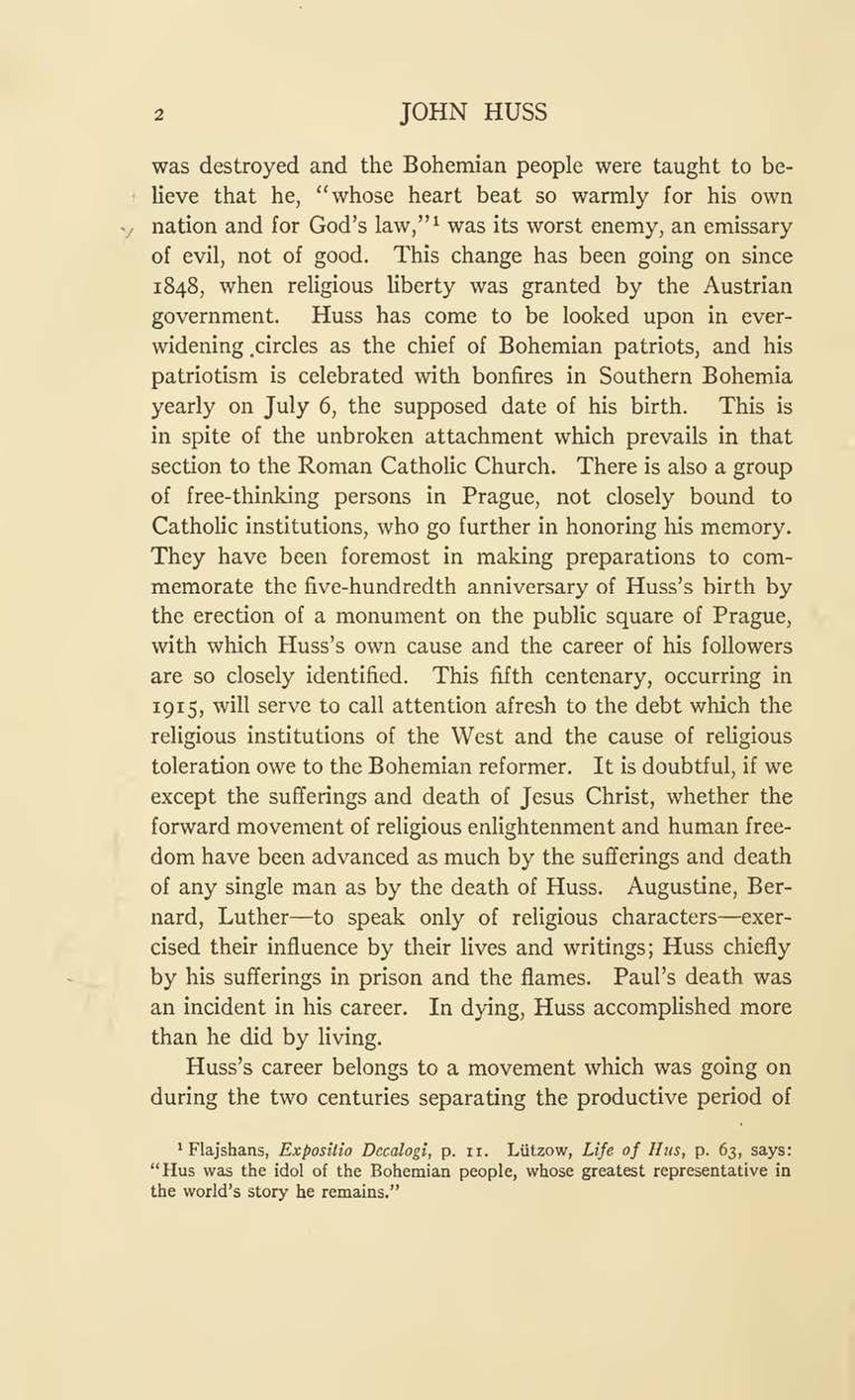was destroyed and the Bohemian people were taught to believe that he, “whose heart beat so warmly for his own nation and for God’s law,”[1] was its worst enemy, an emissary of evil, not of good. This change has been going on since 1848, when religious liberty was granted by the Austrian government. Huss has come to be looked upon in everwidening circles as the chief of Bohemian patriots, and his patriotism is celebrated with bonfires in Southern Bohemia yearly on July 6, the supposed date of his birth. This is in spite of the unbroken attachment which prevails in that section to the Roman Catholic Church. There is also a group of free-thinking persons in Prague, not closely bound to Catholic institutions, who go further in honoring his memory. They have been foremost in making preparations to commemorate the five-hundredth anniversary of Huss’s birth by the erection of a monument on the public square of Prague, with which Huss’s own cause and the career of his followers are so closely identified. This fifth centenary, occurring in 1915, will serve to call attention afresh to the debt which the religious institutions of the West and the cause of religious toleration owe to the Bohemian reformer. It is doubtful, if we except the sufferings and death of Jesus Christ, whether the forward movement of religious enlightenment and human freedom have been advanced as much by the sufferings and death of any single man as by the death of Huss. Augustine, Bernard, Luther—to speak only of religious characters—exercised their influence by their lives and writings; Huss chiefly by his sufferings in prison and the flames. Paul’s death was an incident in his career. In dying, Huss accomplished more than he did by living.
Huss’s career belongs to a movement which was going on during the two centuries separating the productive period of
- ↑ Flajshans, Expositio Decalogi, p. 11. Lützow, Life of Hus, p. 63, says: “Hus was the idol of the Bohemian people, whose greatest representative in the world’s story he remains.”
